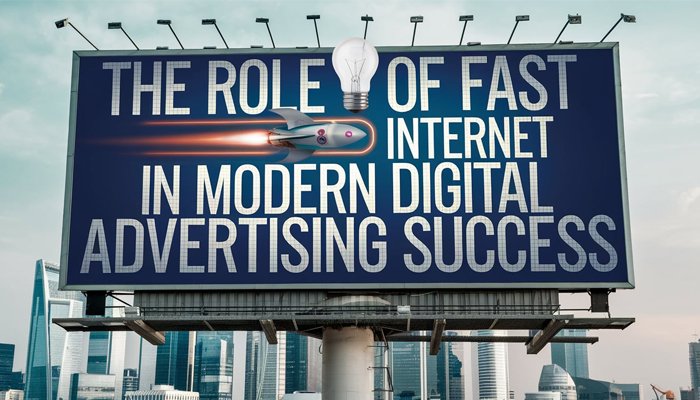The Role of Fast Internet in Modern Digital Advertising Success
Digital advertising has transformed how businesses reach consumers, relying heavily on speed, precision, and real-time engagement. A fast and reliable internet connection plays a pivotal role in ensuring campaigns are executed seamlessly, data is processed instantly, and customer interactions remain uninterrupted. As competition in the digital space intensifies, businesses must leverage high-speed internet to stay ahead.
Real-Time Data Processing and Analytics
Successful digital advertising relies on data-driven decision-making. Marketers track user behavior, analyze engagement metrics, and adjust campaigns on the fly to optimize performance. Slow internet can hinder this process, causing delays in accessing critical insights. Fast internet ensures that data flows without interruption, allowing businesses to make quick, informed decisions that improve ad targeting, budget allocation, and return on investment.
Seamless Multimedia Advertising
Modern advertising extends beyond static images and text. High-quality videos, interactive ads, and augmented reality experiences are now integral to marketing strategies. However, these formats require high bandwidth to upload, stream, and manage effectively. Slow internet can lead to buffering issues, delayed load times, and poor user experiences, ultimately reducing ad effectiveness. With high-speed connectivity, advertisers can seamlessly deliver rich, immersive content that engages audiences and drives conversions.
Programmatic Advertising Efficiency
Programmatic advertising automates the buying and placement of ads in real time. It relies on sophisticated algorithms and rapid exchanges of information between multiple platforms. If an internet connection lags, ad placements may suffer from inefficiencies, resulting in missed opportunities and wasted ad spend. Fast internet ensures real-time bidding (RTB) platforms function smoothly, allowing advertisers to secure the best placements at the right moment.
Enhanced Collaboration and Workflow
Digital advertising involves multiple stakeholders—marketers, designers, data analysts, and ad buyers—who collaborate remotely. Cloud-based platforms, video conferencing, and real-time project management tools facilitate seamless teamwork. A sluggish connection can disrupt communication, delay approvals, and slow campaign rollouts. With fast and reliable internet, teams can work efficiently, ensuring projects move forward without unnecessary bottlenecks.
Optimized Social Media and Influencer Marketing
Social media platforms like Instagram, TikTok, and YouTube are at the heart of digital advertising. Brands rely on influencers, live streaming, and real-time interactions to connect with audiences. Fast internet allows businesses to monitor trends, respond to customer feedback instantly, and execute time-sensitive promotions without technical hiccups. Additionally, high-speed connectivity ensures influencers can produce and upload high-quality content that aligns with brand campaigns.
Localized Advertising and Connectivity
For businesses in major metropolitan areas, high-speed internet is essential for executing location-based advertising strategies. Companies in Houston, for example, benefit from fiber internet in Houston, enabling them to run high-performance digital campaigns tailored to local audiences. Fast internet allows businesses to integrate geotargeting, deliver personalized ads, and track engagement with precision.
Conclusion
The success of digital advertising depends on seamless execution, real-time data access, and immersive content delivery. Slow internet can lead to campaign inefficiencies, poor user experiences, and lost revenue opportunities. Investing in high-speed internet ensures businesses stay competitive, optimize their advertising efforts, and engage audiences effectively in an increasingly digital world.
